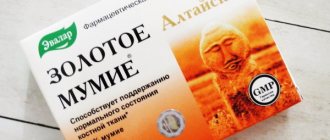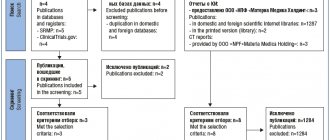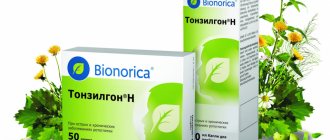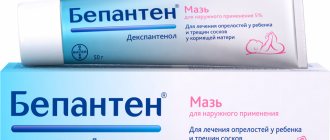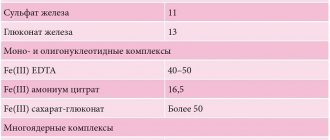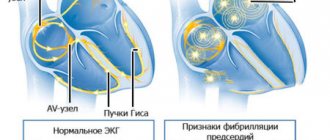Microiodide 200 tablets 200 mcg x100
ATX code: H03CA (Iodine preparations) Active substance: potassium iodide (potassium iodide) Ph.Eur. European Pharmacopoeia
Dosage form
Microiodide 200
Tabletkireg. No.: LP-002282 dated 10/23/13 - Valid
Release form, packaging and composition of the drug Microiodide 200
The tablets are flat-cylindrical, white, with a chamfer and a score.
1 tab.
potassium iodide 262 mcg,
incl. iodine 200 mcg
Excipients: lactose monohydrate 115.701 mg, sucrose 2.237 mg, colloidal silicon dioxide (aerosil) 1.2 mg, calcium stearate 0.6 mg.
Clinical-pharmacological group: Iodine preparation for the prevention and treatment of thyroid diseases Pharmaco-therapeutic group: Thyroxine synthesis regulator-iodine preparation
pharmachologic effect
A product containing inorganic iodine. When iodides enter the epithelial cells of the thyroid follicle, under the influence of the enzyme iodide peroxidase, iodine is oxidized to form elemental iodine, which is included in the tyrosine molecule. In this case, one part of the tyrosine radicals in thyroglobulin is iodinated. Iodinated tyrosine radicals condense into thyronines, the main of which are thyroxine (T4) and triiodothyronine (T3). The resulting complex of thyronine and thyroglobulin is released as a deposited form of thyroid hormone into the follicle colloid and remains in this state for several days or weeks. With iodine deficiency, this process is disrupted. Potassium iodide, compensating for iodine deficiency, helps restore impaired synthesis of thyroid hormones.
With normal iodine content in the environment, under the influence of excess iodides, the biosynthesis of thyroid hormones and their release from thyroglobulin are inhibited, the sensitivity of the thyroid gland to the thyroid-stimulating hormone of the pituitary gland is reduced and its secretion by the pituitary gland is blocked.
Pharmacokinetics When taken orally, it is rapidly absorbed from the gastrointestinal tract. Widely distributed in all tissues and fluids of the body.
Indications of the active substances of the drug Microiodide 200 Prevention and treatment of endemic goiter. Prevention of goiter relapse during complex treatment with thyroid hormone preparations. ICD-10 codes
ICD-10 code Indication
E01.0 Diffuse (endemic) goiter associated with iodine deficiency
E01.1 Multinodular (endemic) goiter associated with iodine deficiency
Dosage regimen The method of administration and dosage regimen of a particular drug depend on its release form and other factors. The optimal dosage regimen is determined by the doctor. The compliance of the dosage form of a particular drug with the indications for use and dosage regimen should be strictly observed. Individual. The daily dose in terms of iodine is 50-100 mcg for children, and 100-200 mcg for adolescents and adults.
Side effects Manifestations of iodism: swelling of the nasal mucosa, urticaria, Quincke's edema, eosinophilia, shock, tachycardia, irritability, sleep disturbances, increased sweating, diarrhea (in patients over 40 years of age), in some cases when used in doses exceeding 300 -1000 mcg/day, hyperthyroidism may develop (especially in elderly patients, in the presence of nodular or diffuse toxic goiter); with high-dose therapy (more than 1 mg/day), iodine-induced goiter and, accordingly, hypothyroidism may develop.
Contraindications for use Severe hyperthyroidism, latent hyperthyroidism (when used in doses exceeding 150 mcg/day), toxic adenoma, nodular or diffuse toxic goiter (when used in doses of 300-1000 mcg/day), dermatitis herpetiformis (Dühring's disease), pregnancy and breastfeeding (when used in doses of 1-2 mg/day), increased sensitivity to iodine preparations.
Use during pregnancy and breastfeeding
During pregnancy, use is possible only in recommended doses, because Iodine penetrates the placental barrier and can cause the development of hypothyroidism and goiter in the fetus.
Iodine is excreted in breast milk. When used by a mother during lactation (breastfeeding) in doses of more than 1 mg/day, there is a risk of developing hypothyroidism in an infant.
Use for impaired renal function During therapy, hyperkalemia may develop in patients with renal failure.
Special instructions During therapy in patients with renal failure, hyperkalemia may develop.
Drug interactions
With simultaneous high-dose therapy with iodine and potassium-sparing diuretics, hyperkalemia may develop; with lithium preparations, goiter and hypothyroidism may develop. Perchlorate and thiocyanate competitively inhibit iodine absorption by the thyroid gland, and TSH stimulates it.
Antithyroid drugs weaken the effect (mutually).
Release form and composition
The drug is available in the form of tablets: white, flat-cylindrical, round, with a dividing line and chamfer (in blister packs: 10 pcs., 5 packs in a cardboard pack; 25 pcs., in a cardboard pack 2, 4, 6 or 8 packages; each package also contains instructions for use of Microiodide 200).
1 tablet contains:
- active ingredient: potassium iodide – 0.262 mg, which is equivalent to the content of 0.2 mg of iodide;
- auxiliary components: sucrose, lactose monohydrate, aerosil (colloidal silicon dioxide), calcium stearate.
Overdose
Symptoms: against the background of long-term therapy at a daily dose above 0.3 mg, iodine-induced hyperthyroidism may develop, more often in elderly patients suffering from goiter for a long time, as well as with nodular goiter or toxic adenoma. In case of chronic overdose, the development of iodism (excess iodine in the body) is possible. Characteristic symptoms of iodism are: metallic taste in the mouth, acne, inflammation and swelling of the mucous membranes (conjunctivitis, rhinitis, gastroenteritis, bronchitis), swelling of the salivary glands, dermatitis, nervous irritability, fever. Symptoms of acute overdose include: reflex vomiting, brown discoloration of mucous membranes, abdominal pain, diarrhea (including melena), and in severe cases, dehydration and shock are possible.
Treatment: in case of chronic overdose, discontinuation of Microiodide 200 is required. Treatment of acute overdose involves immediate gastric lavage, administration of sodium thiosulfate, then the prescription of symptomatic therapy, measures to restore water-electrolyte balance, and anti-shock therapy.
Microiodide 200, instructions for use: method and dosage
The tablets are taken orally, after meals, with plenty of liquid.
When treating children under three years of age, the tablet must be dissolved in 1 tablespoon of cooled boiled water.
The dose and duration of taking Microiodide 200 is determined by the attending physician.
The daily dose is taken once.
Recommended daily dosage:
- prevention of the development of endemic goiter: children, including newborns – 0.1 mg; adolescents and adults – 0.1–0.2 mg; during pregnancy and lactation – 0.15–0.2 mg;
- prevention of goiter relapse after completing a course of treatment with thyroid hormones or after surgery to remove it: 0.1–0.2 mg;
- treatment of euthyroid goiter: newborns, children, adolescents – 0.1–0.2 mg; young patients and adults – 0.3–0.5 mg.
The period of use of Microiodide 200 for the purpose of prophylaxis can last several months or even years, if indicated - for life. The course of treatment for goiter in newborns averages 0.5–1 month, in children, adolescents and adults – 6–12 months or more.
special instructions
Before starting the use of potassium iodide, it is necessary to conduct an appropriate examination to exclude malignant lesions of the thyroid gland, hyperthyroidism or nodular toxic goiter.
If renal function is impaired, taking Microiodide 200 increases the risk of developing hyperkalemia, so treatment in this category of patients must be accompanied by periodic monitoring of potassium levels in the blood.
It should be taken into account that when using the drug in doses exceeding 0.15 mg per day, the transition of the latent form of hyperthyroidism to the manifest form is possible.
Impact on the ability to drive vehicles and complex mechanisms
During the period of taking Microiodide 200, patients’ ability to drive vehicles and machinery is not impaired.
Contraindications
Absolute:
- hypothyroidism (except when it is caused by severe iodine deficiency);
- severe thyrotoxicosis;
- latent thyrotoxicosis – for use of the drug in a daily dose above 0.15 mg;
- dermatitis herpetiformis;
- toxic adenoma, nodular goiter - for use of the drug in a daily dose above 0.3 mg, except for preoperative therapy for the purpose of blocking the thyroid gland;
- simultaneous treatment with radioactive iodine in patients with or suspected thyroid cancer;
- galactose intolerance, lactase deficiency, glucose-galactose malabsorption syndrome;
- hypersensitivity to iodine and components of the drug.
Microiodide 200 should be used with caution if renal function is impaired.
Pharmacological properties
Pharmacodynamics
Microiodide 200 is an iodine preparation that regulates the synthesis of thyroxine, the thyroid hormone of the thyroid gland. The active ingredient of the drug is potassium iodide, in addition to replenishing iodine deficiency, it has antithyroid, expectorant, mucolytic, radioprotective, absorbable, and antifungal effects.
Iodine is an essential trace element that the thyroid gland needs for normal functioning. Iodine ions, after iodides enter the epithelial cells of the thyroid follicle, are oxidized under the influence of the enzyme iodide peroxidase to elemental iodine. The resulting iodine is included in the tyrosine molecule, where one part of the tyrosine radicals is iodinated in thyroglobulin to form thyronines, the main ones being triiodothyronine (T3) and thyroxine (T4). Thyronines and thyroglobulin form a complex deposited in the colloid of the thyroid follicle.
The intake of iodine into the body in physiological quantities helps prevent the development of endemic goiter caused by iodine deficiency in food. Taking the drug affects the ratio of T3 and T4, the level of thyroid-stimulating hormone, and in children (including newborns) it normalizes the size of the thyroid gland.
Pharmacokinetics
After taking Microiodide 200 orally, potassium iodide is rapidly and completely absorbed in the small intestine. Its distribution in the intracellular space lasts for 2 hours.
The concentration of iodide in the tissues of the thyroid gland is more than 0.5 mg/g; in addition, it accumulates in the mucous membrane of the stomach, salivary and mammary glands.
Actively overcomes the hematoplacental barrier and is excreted in breast milk.
It is excreted mainly through the kidneys: 80% of the dose - within the first 48 hours, the rest - within 10-20 days. Potassium iodide is partially excreted in the secretions of the salivary, sweat, bronchial and other glands.
Drug interactions
During the period of use of Microiodide 200, it should be taken into account that potassium thiocyanate and perchlorate suppress the absorption of iodine by the thyroid gland. Thyroid-stimulating hormone helps improve the absorption of iodine by the thyroid gland and stimulates the production of its hormones.
With concomitant therapy with antithyroid drugs, the effects are mutually weakened.
The risk of hyperkalemia increases with simultaneous use of the drug with angiotensin-converting enzyme inhibitors (including lisinopril, captopril, enalapril), with a combination of high doses of iodine and potassium-sparing diuretics.
Taking lithium supplements in combination with high doses of iodine contributes to the development of goiter and hypothyroidism.
Against the background of potassium iodide, the uptake of iodine isotopes 1311 and 1231 by the thyroid gland decreases.
